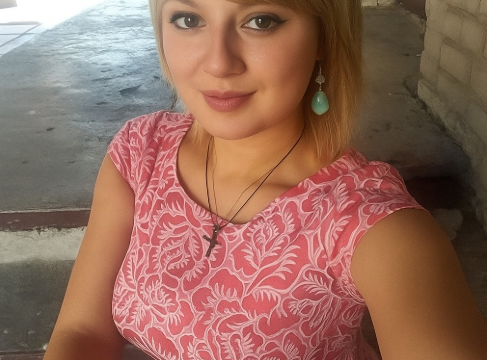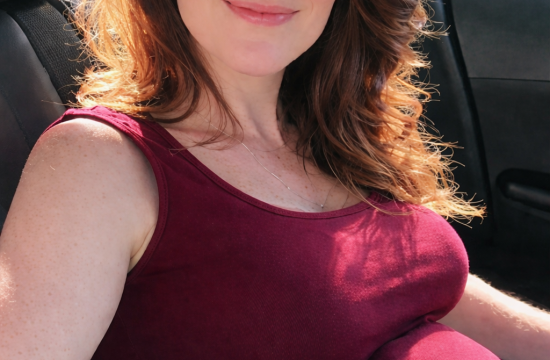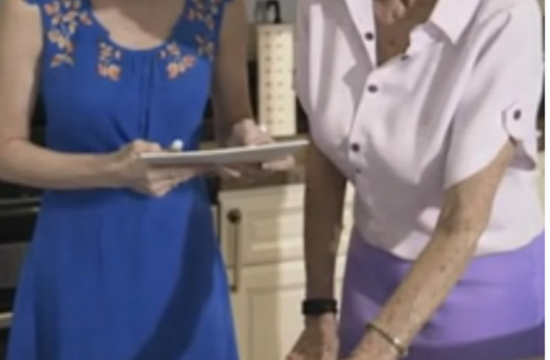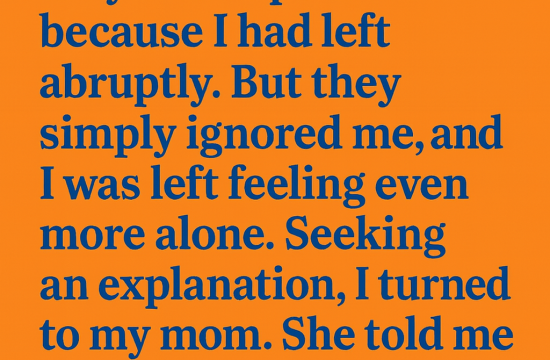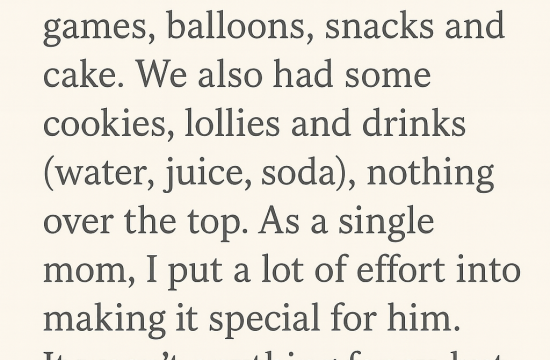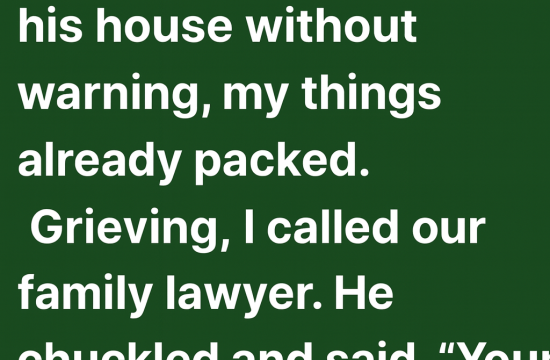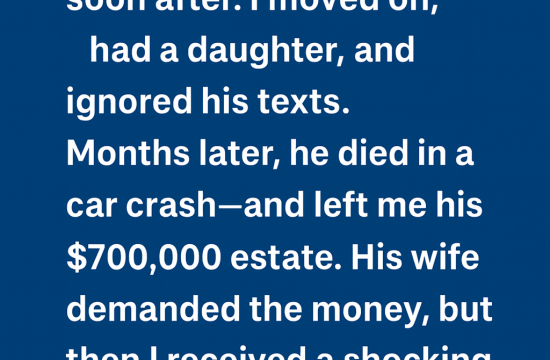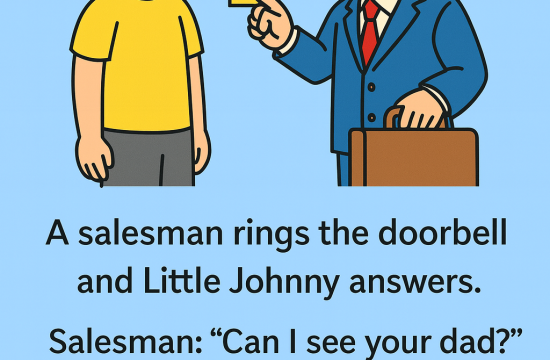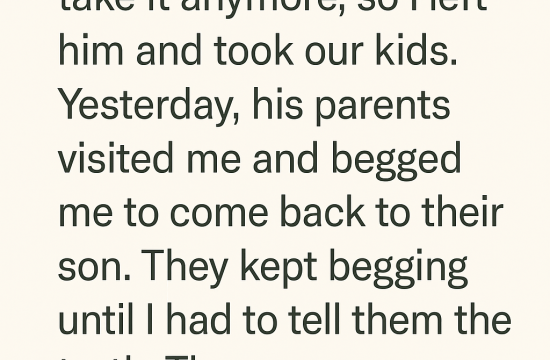I grew up believing I was one of the lucky ones. Adopted as a baby by a couple who couldn’t have children of their own, I only knew love.
Brian and Kayla came later. Mom and Dad adopted them too.
They were mine and I was theirs. We built pillow forts that took over the living room, whispered secrets past bedtime, and called ourselves “real siblings” whenever kids at school questioned it.
You know how cruel kids can be.
“We’re all chosen,” Mom would say when people stared at us in grocery stores. “Special, but equals in every way.”
I believed her. We all did.
But that belief cracked quietly the night I turned 25. Funny how something as simple as opening an envelope can split your life in two.
The letter that changed everything arrived in a cream envelope with a lawyer’s stamp. I tore it open and had to read it three times before I understood.
Dear Taylor,
We regret to inform you that Alina, your birth mother, passed away last month.
She wanted you to know she was proud of you. She followed your life through the agency but never wanted to interfere. Alina regretted never meeting you.
Before she died, she named you the sole beneficiary in her will…
The letter listed my inheritance: her house, a life insurance payout, and savings. Total value: $187,000.
I called my parents that evening.
We sat around the same oak table where we’d shared countless family dinners. Mom’s lasagna steamed in the center, filling the air with garlic and oregano.
“She left me everything,” I said, pushing pasta around my plate.
There was silence, except for the soft clink of forks. Dad cleared his throat.
Mom blinked and muttered, “Wow.”
I waited for more — congratulations, curiosity about this woman who gave me life, or even joy that I’d been remembered.
But there was nothing.
“So what will you do with it?” Dad finally asked.
“Maybe travel. Maybe start that business I’ve been talking about,” I said.
I should have known then it wouldn’t be simple.
The real rupture came when Brian and Kayla found out.
Kayla cornered me the next morning while I made coffee.
“She left you money? That’s not fair,” she snapped.
I nearly dropped my mug. “What do you mean?”
“We’re all adopted. We’re all siblings. We should split it,” she said.
Brian was worse. Later, when I was pulling a file from Mom’s office, he appeared behind me, voice bitter.
“You’re not more adopted than us,” he said. “You don’t get to keep more just because you found your ‘real mom.’”
I stared at him. “She was my birth mother, Brian. Mine.”
They acted like I was robbing them.
I turned to Mom and Dad for support.
Big mistake.
“I don’t want this to divide the family,” Mom said softly, her back to me as she washed dishes.
Dad added, “Maybe you could talk to them. Come to an agreement that makes everyone happy.”
An agreement? As if we were business partners and not family.
No one said, “That’s yours.”
No one said, “You deserve this.”
Just silence — and silence hurts more than anger.
I went to Alina’s funeral alone.
It was small, just five people in a funeral home that smelled like faded flowers. A plain casket. A photo of her in her twenties.
She looked like me. Or I looked like her.
“I’m sorry I never looked for you,” I whispered, placing my hand on the wood.
I cried for a woman I never met but somehow missed, for questions I’d never get to ask.
When I drove home, I knew something was wrong the second I saw the boxes on the porch.
I ran up the steps. Inside were my clothes, my books, even the baby blanket Mom crocheted when I was adopted — all packed up like I was a stranger who’d overstayed my welcome.
Brian stood in the doorway, arms crossed.
“You either share the inheritance or you don’t live here,” he said.
Kayla’s voice rang out behind him: “You’re tearing this family apart!”
What do you say to that? How do you fight people who’ve decided you’re the villain?
I didn’t cry or argue. I just took my stuff and drove away from the only family I’d ever known.
The next day, Mom left a voicemail urging me to talk. Dad suggested I give Brian and Kayla “just a portion.”
I deleted the messages.
Some conversations aren’t worth having.
I rented Alina’s house and moved into a tiny studio. Therapy became my lifeline. I used the inheritance sparingly and finally built the startup I’d dreamed of since college.
Four years passed.
Four years of birthdays alone, of realizing family isn’t always blood or papers. It’s the people who choose to stay.
Then came the text from an old high school friend.
“Hey, hope you’re okay. My mom works at the senior home on Maple Street. Thought you should know — your dad’s there. He’s sick. Your siblings left him. Your mom visits daily but looks… tired. Room 237 if you want to know.”
I drove there, hands trembling.
He was thinner, frailer. But when he saw me, his eyes lit up like dusk porch lights.
“Hey, sweetheart,” he whispered, like nothing had ever happened.
I sat by his side, holding his hand. We didn’t talk about the past.
The nurse later told me he needed heart surgery. Expensive. Insurance wouldn’t cover it.
I paid for it anonymously.
Mom called three days later.
“They told us it was you,” she said, voice breaking. “The surgery payment. A family member took care of it.”
I met her outside the facility the next day and handed her a check to help her move into a quiet place near Dad.
She hugged me tight. “I’m sorry,” she whispered. “I’m so sorry.”
Some apologies come years late — but sometimes late is better than never.
Brian and Kayla tried to contact me after that, with fake warmth and veiled requests for money. I ignored them.
Some bridges you don’t burn. You just stop crossing them.
I visited Dad until he passed six months later. I still help Mom, but Brian and Kayla? They made their choice when they put my life in boxes on that porch.
Some stories don’t end with reconciliation.
Sometimes they end with peace — and that’s enough.


